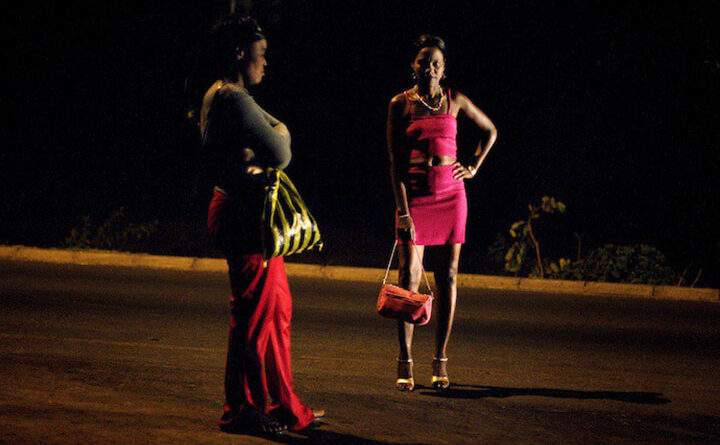Give sex workers loans & houses: Govt told
SENATORS have called on the government to provide capital, loans and stands for sex workers, highlighting that dire living conditions in the trade are putting children’s welfare at risk.
The senators were debating a motion on the Report of the HIV/Aids Committee on Access to HIV/Aids and Sexual Reproductive Health Services by sex workers in Zimbabwe presented by chairperson of the Portfolio Committee on HIV and Aids, Angeline Tongogara.
In her contribution, Tongogara said findings from nationwide consultations revealed that sex workers were struggling to provide their families decent shelter.
“Sex workers are pleading for residential stands, loans or capital to start businesses. They were saying they cannot afford residential stands because they do not get enough money.
“They use one room which they divide into four compartments together with their children and their clients for the whole night,” she said.
The aenators visited various areas including Forbes Border Post, Ngundu, Beitbridge, Gweru, Chinhoyi, Chiwaridzo, Bindura and Harare.
Ishmael Zhou said the Senators engaged sex workers, adding that the Parliamentarians were not aware that sex work was a profession.
“I was surprised that they view this as a profession. They even have their language in the sector, for example, they say imhene when they refer to their rich customers,” he said.
“Madam President, this enquiry was important to us as a nation because it happened at the time of ‘Stop No Work’ that was enacted by Western countries, especially the United States.”
Zhou said there was a crisis in the country because of the HIV and Aids pandemic, especially among sex workers.
“Most of them were suggesting having their wills in place because they have mixed feelings, thinking that they will lose their lives in six months.”
He said sex workers also wanted Finance, Economic Development and Investment Promotion minister Mthuli Ncube to reduce tariffs paid at the borders because haulage trucks were avoiding Beitbridge and using the Kazungula route because of high tariffs.
“These are some messages that these people say to us (sic). Another thing that we learned from sex workers is that they have a network that surpasses every network that we think we have.
“They can communicate with anyone from Vumba, Botswana, all over the country, informing each other on how their business is going. They also wait for the month-end because they know that is when they get more money.
“During mid-month, there will be less clients, so they get more money and clients on the month-end. They said they can get about three to four clients per day, but the income is not enough because they can only afford rentals without groceries.”
The senators said the situation threatened children’s welfare, where they are exposed to tragic circumstances, while calling for more resources for HIV and Aids programmes.
“When they do their commercial sex work, they take turns to use one room. One of them gave us a painful narration that when her client came, she was not around and he ended up raping one of her daughters,” Information Communication Technology deputy minister Dingimuzi Phuti said.
“If we increase the allocation for HIV and Aids programmes, organisations such as the National Aids Council, which are familiar with the hotspots where sex workers congregate, will be better positioned to support and assist these individuals. Therefore, we urge the government to allocate a dedicated budget for HIV and Aids initiatives.”
Tapfumanei Muzoda called on the government to expedite the issue of injections, “which are preventive and injections for those who are already positive, so that the transmission of HIV is controlled because there are some who do not want to hear about protection.”
Senator Sesel Zvidzai said sex workers deserved protection under the law.
“It is about the Constitution. It is about section 76 of the Constitution, which demands that every Zimbabwean should enjoy certain rights including healthcare rights.
“Let us not exclude them, let us not stigmatise them, let us not push them into the black market of prostitution and let us put in place policies that mitigate their plight,” he said.
However, legislator Omega Sipani-Hungwe condemned sex work as immoral and un-African, insisting on women empowerment instead.
“In our culture, sex work is prostitution because you find a woman sleeping with multiple men. What I am saying is that we need to find mitigatory measures where women are empowered with life skills, vocational skills and income-generating projects,” she said.
“I do not agree with the issue of commercial sex work because this country is now morally bankrupt.”
NewsDay




